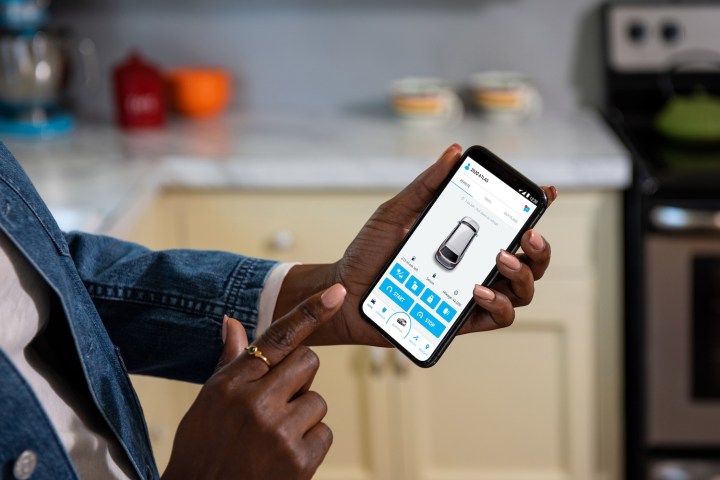
Volkswagen made several changes to its lineup for the 2020 model year, but the big news is that most of its cars come with an updated infotainment system that offers a higher level of connectivity. The next generation of Car-Net is more feature-rich and quicker than the software it replaces, and owners stand to benefit because it’s ultimately much more convenient.
Motorists can use the Remote Access feature to perform a variety of functions remotely. They can start or stop the engine, lock or unlock the doors, honk, flash the lights, find where their car is parked, and get a comprehensive vehicle health report by tapping their phone a few times. They can also sign up to receive push notifications; the car might inform them that its doors are unlocked, for example. The app is compatible with Android and Apple devices, and the service is free for the first five years of ownership.
Volkswagen owners whose car left the assembly line with navigation can also send a destination directly from their phone to their dashboard. This feature saves time because it allows motorists to hop in their car, put it in drive, and go without first having to type in the address they’re off to. Finally, owners will gain the ability to send their car voice commands via compatible smart home devices by the end of 2019. The German firm pointed out it will notably be possible to remotely check the fuel level, or start the engine, by speaking to an Alexa-enabled device.
Up to four devices can connect to the standard 4G LTE hot spot at the same time. Surfing the internet on-the-go requires a data plan, which costs about $20 a month before taxes and various fees enter the equation. Verizon is the only carrier that can beam an internet connection into compatible Volkswagen as of 2019. T-Mobile will offer its services in 2020, and other carriers will be announced at a later date. Competition should bring the price down; Volkswagen expects giving multiple carriers a seat at the same connectivity table will change the industry.
Interestingly, Volkswagen added a feature called DriveView to its Car-Net infotainment system. Users who willingly enroll in the program consent to having their driving behavior tracked by the onboard software. DriveView records night driving, hard braking, how much time the car spends at idle, and how often it exceeds the posted speed limit. The function analyzes these areas (and others) to establish an overall driving score, which motorists can use to get an insurance discount.
The company told Digital Trends that it partnered with a third-party aggregator that works with most major auto insurance companies in the United States. Motorists are able to share their driving data with Volkswagen’s partners, and they can ten receive car insurance offers based on how good they drive. Opting in isn’t mandatory; those who would rather not get scored by their own car just need to not turn the feature on.
The 2020 Volkswagen models that offer the updated Car-Net system include the Arteon, the Atlas, and the Jetta. The five-seater Atlas the company is nearly ready to introduce will offer this technology, too. Apple CarPlay and Android Auto compatibility continue to come standard across the board for added convenience.
Editors' Recommendations
- Here’s how Volkswagen plans to electrify America’s most popular car segment
- Sharp and tech-savvy, the Volkswagen Golf gets a full digital reboot
- Volkswagen’s dapper 2020 Cross Sport may make its big brother jealous
- For Volkswagen, the electric ID.3 is more than a new car. It’s a new chapter
- Official VW electric conversion updates the classic Beetle




